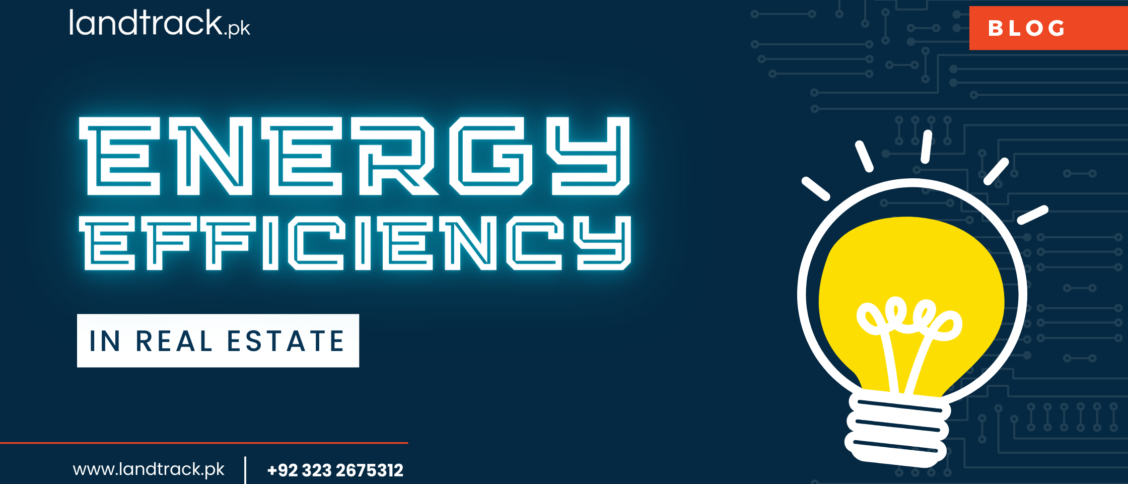Introduction: A Shift Towards Sustainability
In recent years, the global shift towards sustainable development has placed a significant spotlight on the Sustainable Real Estate sector, particularly on how buildings consume energy. In Pakistan, a notable emphasis has been laid on integrating energy efficiency into Sustainable Real Estate development to not only curb the high energy costs that burden the economy but also to promote environmental sustainability. This perspective has been notably discussed at forums such as the Proptech Convention, where experts like Dr. Fiaz Chaudhry from the LUMS Energy Institute have shared critical insights into the path forward.
The Energy Landscape in Pakistan
Pakistan’s burgeoning energy crisis, characterized by high costs and inefficiencies, poses a unique challenge to its economic expansion. The Sustainable Real Estate sector, a substantial consumer of energy, emerges as a pivotal player in this scenario. Buildings, both commercial and residential, significantly contribute to national energy consumption, with traditional construction practices not adequately prioritizing energy efficiency. This has led to increased operational costs and a larger carbon footprint, urging a shift in how buildings are designed and constructed.
The Role of Real Estate in Mitigating Energy Consumption
The traditional approach to building design in Pakistan has often overlooked the potential of energy-saving technologies and sustainable practices. However, the tide is changing as the impact of such oversight becomes more apparent in the face of global environmental challenges and economic pressures from rising energy costs. The real estate sector is now seen not just as a consumer but also as a potential innovator in energy conservation.
Advocating for Stringent Building Codes
One of the key solutions to improving energy efficiency in buildings is the adoption of stringent building codes that enforce the integration of energy-efficient materials and technologies. Dr. Fiaz Chaudhry’s advocacy for regulatory frameworks that compel developers to adopt sustainable practices highlights the need for policies that support architectural innovation and the use of renewable energy sources like solar panels.
Leveraging Technology for Sustainable Development
The role of technology in transforming real estate into a more energy-efficient industry is monumental. Innovations such as smart automation systems, advanced thermal insulation, and solar energy harnessing not only reduce the energy footprint of buildings but also enhance the living environments for occupants. These technologies are crucial for the sector’s adaptation to sustainable practices that meet global standards of energy efficiency.
Real Estate’s Contribution to National Energy Policy
By actively participating in the national energy policy dialogue, real estate developers and stakeholders can showcase the benefits of energy-efficient projects. This involvement is crucial in setting examples for other industries and aligning real estate development with the national goals of reducing energy consumption and promoting economic stability through sustainable practices.
Addressing Challenges and Seizing Opportunities
Despite the hurdles, the transition to energy-efficient building practices offers numerous benefits, including cost savings, increased property values, and improved occupant satisfaction. The real estate sector’s commitment to sustainable development can also spur job creation in new industries related to green technologies and building practices.
Educational Initiatives for Sustainable Development
Empowering the next generation of architects, builders, and developers through educational programs focused on sustainability is essential for long-term change. These initiatives can cultivate a workforce skilled in modern technologies and motivated by sustainable development goals, ensuring that energy efficiency becomes a cornerstone of all future real estate projects.
Innovative Building Materials and Practices
The adoption of innovative building materials like high-performance windows, insulated siding, and energy-efficient roofing materials can dramatically reduce energy consumption in buildings. These materials help maintain indoor temperature, reducing the need for heating and cooling, thus lowering energy bills and environmental impact.
Solar Energy: A Game Changer for Real Estate
Solar energy is becoming an increasingly attractive option for real estate developers. Integrating solar panels into building designs not only reduces reliance on traditional energy sources but also provides a sustainable power supply that can lead to significant cost savings over time. This approach aligns with global trends towards renewable energy use in real estate and is particularly pertinent in sunny regions of Pakistan where solar energy potential is high.
Conclusion: The Road Ahead
The insights provided by experts like Dr. Fiaz Chaudhry at events such as the Proptech Convention underscore the critical need for integrating sustainable practices within Pakistan’s real estate sector. The path to energy-efficient real estate is not just a technical challenge but a comprehensive shift involving regulatory changes, technological innovation, and educational reform. By embracing these changes, the real estate sector in Pakistan can lead a green revolution, setting a benchmark for sustainable development in emerging markets.
Epilogue: A Sustainable Future for Real Estate
The Proptech Convention serves as a crucial platform for discussing the intersection of technology and real estate, highlighting the essential role of sustainability. The continued dialogue and collaboration





